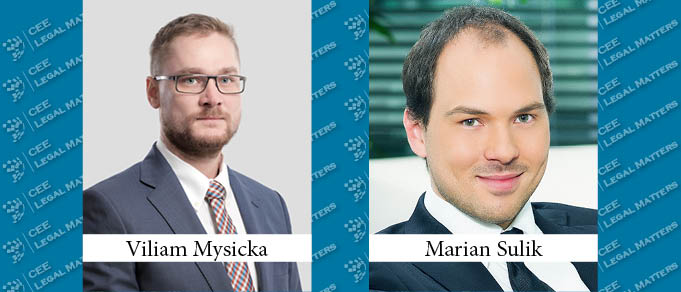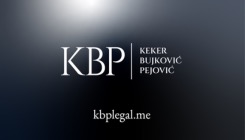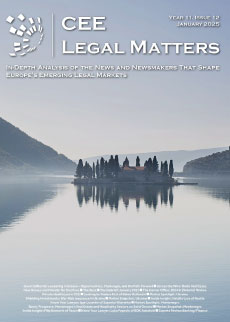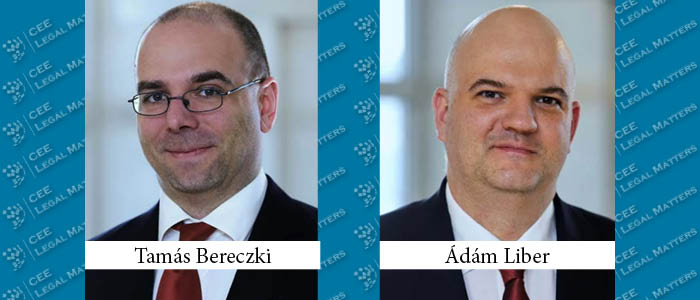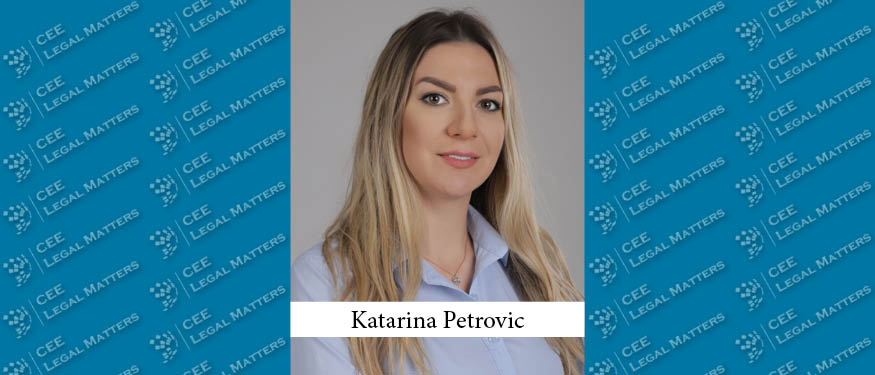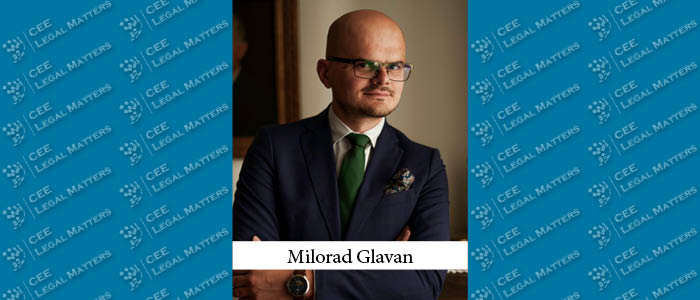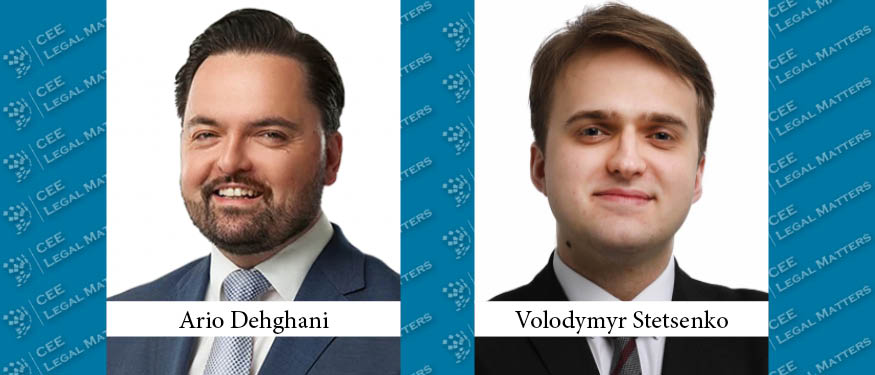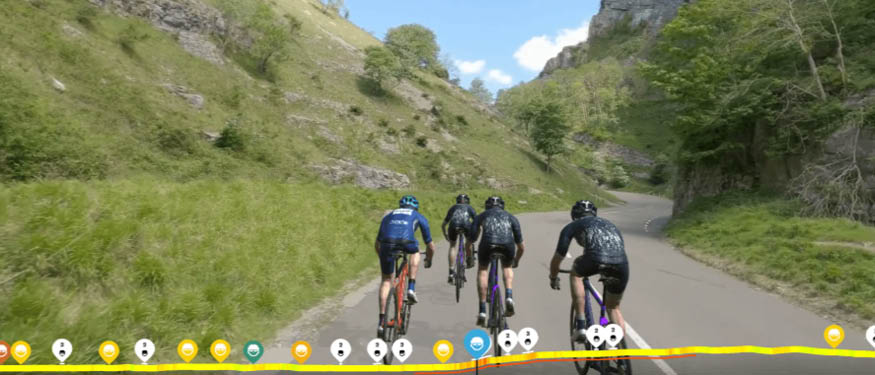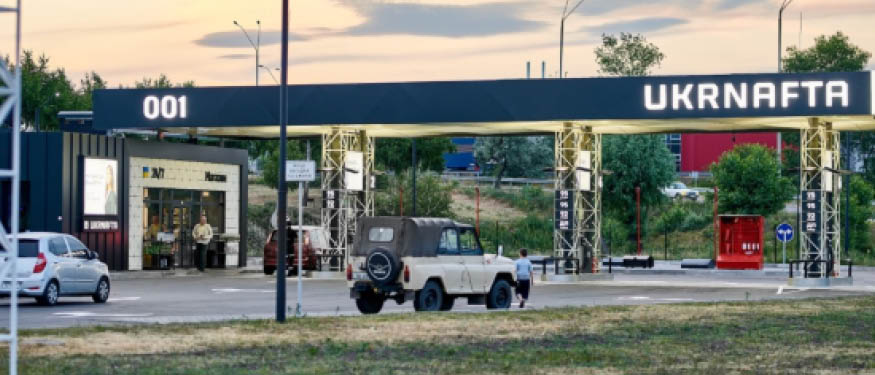On March 11, 2020, CEE Legal Matters reported that Kinstellar had advised Austria’s European City Estates – a group of companies owned by the Austrian Humer Private Foundation – on its acquisition of the 22,000-square-meter Rosum office complex in Bratislava from Penta Real Estate, which was advised by Skubla & Partneri.
The Players:
Counsel for European City Estates: Viliam Mysicka, Partner, Kinstellar Slovakia
Counsel for Penta Real Estate: Marian Sulik, Partner, Skubla & Partneri
CEELM: Viliam, let’s start with you. How did you and Kinstellar become involved in this matter?
Viliam: European City Estates is a long-term Kinstellar client in Prague. In 2019, ECE began an expansion initiative in Slovakia. Due to the need for a Slovak law firm, our Prague colleagues introduced me to Dejan Mansfeld-Rupnik, ECE’s managing director.
This referral resulted in us assisting ECE with its acquisition last spring of the Business Centrum Tesla 2 (BCT2) in Kosice from Penta Real Estate.
Rosum was our second project with ECE in Slovakia. Penta initially intended to sell it to another buyer, however, when negotiations collapsed in December 2019, ECE got involved, and we started work shortly before Christmas.
We actually started the due diligence on January 7, 2020 and completed the acquisition (including financial settlement) on February 27, 2020, so the entire transaction took less than eight weeks, making it one of the fastest deals on the Slovak real estate market in recent years.
CEELM: Marian, how about you? How did Skubla & Partneri become involved in this matter?
Marian: We have a long-term relationship with Penta Real Estate and we actually advised them already in the past on several high profile real estate transactions. We have acted for them both on the sell side and the buy side, historically, therefore in our view it was kind of natural for them to approach us in this matter. We were involved from the very beginning, when the client decided to sell the asset and needed legal support.
CEELM: What, exactly, was the initial mandate when you were each retained for this project, at the very beginning?
Viliam: It was full-scope from the very beginning. I believe we had very good cooperation on the Kosice deal, so it was natural that the cooperation resulted in the Rosum deal as well.
Marian: We were basically asked to cover and oversee the whole sale process from the legal point of view. This included assisting with compiling the vendor due diligence data room for the purposes of the buyer’s due diligence report; assisting with the preparation of answers to legal questions; and providing overall support to the project team with respect to questions and needs of a legal character which arose in connection with the transaction. Since this was not our first transaction for Penta, we knew what was expected of us and what are responsibilities were.
CEELM: Who were the members of your teams, and what were their individual responsibilities?
Viliam: I led our team and was the main contact for the client on the Kinstellar side. The team consisted of: Vladimir Policka, Managing Associate, responsible for deal structuring, financing, SPA, and the overall matter management on Kinstellar’ side; and Martin Kosa, Senior Associate, responsible for the due diligence process, financing, and transaction closing, as well as assisting with deal structuring and client management throughout the transaction. The three of us cooperated closely throughout the entire transaction and supported each other as needed.
Of course, the team was supplemented with other colleagues, in particular one of our rising stars, Norbert Stilla, Junior Associate, who assumed the role of main reviewer of the major lease agreements (one of the most important areas of review, considering Rosum is an office building). I would like to use this opportunity thank each and every one of them for their immpecable professionalism, hard work, outstanding knowledge, and diligence.
Marian: I was in charge of negotiating and drafting the SPA and supervising other team members. My colleague, Partner Erika Galgociova, assisted me with the SPA. Associate Michaela Balazova assisted and provided her support during the due diligence phase and Junior Associate Erik Mateasik assisted me with the preparation of ancillary documents and other documents required for closing of the transaction.
CEELM: Please describe the deal in as much detail as possible, including your (and your firms’) roles in helping make it happen.
Viliam: In general, under Slovak law, when there is a change of ownership of real estate, tenants are entitled to terminate their leases. It is therefore customary, if an office builiding is to be acquired, that the deal is structured as a share deal (unless specific circumstances for another approach exist). Thus this deal was structured as a share deal. The target company existed in the form of a joint-stock company (in Slovak: akciova spolocnost). It was therefore expected that the signing and closing would take place simultaneously – preferably by the end of February 2020. Both parties communicated this from the very beginning (it should again be stressed that our due diligence commenced on January 7, 2020, so the end-February was quite a courageous deadline).
Considering the circumstances, the deal structure also depended on (and we were asked to implement mechanisms for) repaying the development bank financing and intragroup financing arrangements provided to the target company.
During the due diligence process, we identified several more-or-less important issues, mainly relating to the construction of the Rosum office building. These were duly discussed with Penta and agreements to remedy the identified flags were finally achieved to the satisfaction of both ECE and Penta.
The transaction documentation was drafted by Penta’s legal counsel (Skubla & Partneri). Our main role consisted of reflecting all issues identified during the due diligence to be covered in the SPA, in particular by R&Ws and/or relevant indemnities provided by Penta as the seller.
My colleagues Vladimir and Martin also assisted ECE with negotiating the financing documentation entered at closing by the target company and communication with the bank’s local counsel.
During the negotiation process we took part in several negotiation meetings with Penta and all its advisors. Given that the same setup on the sell/buy-side (including legal advisors) had already met in the course of the BCT2 acquisition, negotiations on the Rosum acquisition were rather factual, straightforward, and smooth. The same could be said of the signing and closing venue.
Marian: The deal was structured as a share deal, and the fact that the target company was a joint stock company allowed us to structure the deal to allow signing and closing to occur on the same day. We were able to come up with proposals and concessions satisfying both parties which allowed the deal to happen. In particular, we had to consider and implement measures to resolve existing financing issues and existing intragroup financing. There were also several legal topics on which we were able to reach compromise solutions.
CEELM: What’s is the current status of the deal?
Viliam: The deal was signed and closed (including legal and financial settlement) on February 27, 2020, but given the major workload and deadlocks at the relevant state authorities, some post-closing administrative proceedings were only finalized a few days ago.
Marian: The deal was successfully closed and the takeover of the building has occurred.
CEELM: What was the most challenging or frustrating part of the process? Why?
Viliam: Truly, the deal was smooth as we had a good track record with Penta earlier.
Marian: To be honest there were no real frustrating parts. The deal was challenging due to timing and deadlines. We had to make sure that our proposed structure made sense to the buyer so conceptually we had to show the logic behind the structure. But both the buyer and Kinstellar were very reasonable and understood our and client’s demands and reasoning.
CEELM: Was there any part of the process that was unusually or unexpectedly smooth/easy?
Viliam: Financing provided by the Austrian bank – signing, completion and draw of funds – on the same date as the SPA closing is not very common in Slovakia.
Marian: Actually, I would say that the whole transaction went quite smoothly. Our client was well prepared for the deal and the level of detail and quality of documentation was, in our view, high, which enabled the buyer and buyer’s counsels to proceed quite effectively.
CEELM: Did the final result match your initial mandate, or did it change/transform somehow from what was initially anticipated?
Viliam: Except for the volume of documents that needed to be reviewed during the due diligence (which was initially expected to be less) and certain adjustments of the deal structure in terms of financing by the Austrian bank, we can confirm that the final result matched our initial mandate.
Marian: As stated in the beginning, this was not our first transaction with the client. Therefore, we knew what kind of work would be expected from us and I believe we delivered what was required. There was no major change in our mandate and in our role.
CEELM: Viliam, what specific individuals at ECE instructed you, and how did you interact with them?
Viliam: From the very beginning, we wre in daily touch with Dejan Mansfeld-Rupnik, ECE’s managing director.
CEELM: Marian, what about you? Which individuals did you work with at Penta?
Marian: We were instructed by Country Managing Director Juraj Nevolnik and Business Development Director Michal Hranai. Of course, taking into account the value, importance, and demanding nature of the deal, we were in frequent – daily – contact with the client. The majority of the communication was done via e-mail and conference calls, but we had weekly update meetings, which usually took place as personal meetings at the client’s premises.
CEELM: How would you describe the working relationship with each other on the deal? Viliam, can you comment on your relationship with Skubla & Partneri?
Viliam: We would like to highlight the approach by Skubla & Partneri and Marian Sulik, who led the deal on their side. They were exactly the counterparty you want to work with: pragmatic, pro-active, cooperative, and straightforward.
Most of the interactions with Skubla & Partneri was through conference calls and e-mails. However, we participated at several negotiation meetings together with Penta and Skubla & Partneri. These meetings were rather short (not exceeding three hours), and all of them were rather friendly in spirit.
CEELM: Marian, what was your relationship with Kinstellar like?
Marian: I would describe the relationship as very good. We have worked as counterparties on several transactions in the past and in my view there is a mutual respect between our firms (on a professional as well as personal level). In this particular deal, most of the communication was done over phone and via e-mail, even though the communication was quite intense. Personal meetings were quite limited; we basically had an introducory kick-off meeting, a red flag meeting where we discussed and agreed on identified issues, and then a final wrap-up meeting, where we agreed on final outstanding items. We also met at the signing date in our premises, where we went through all the documents jointly (we were in charge of preparation of the documentation for execution). The personal meetings were quite effective and we were able to resolve and agree on raised issues within couple of hours. The overall negotiation process was rather effective as well (we finalized the negotiations in a couple of weeks, even though the communication was intense and hectic).
CEELM: Finally, how would you each describe the significance of the deal?
Viliam: A few points to mention that from our perspective make the deal one of the landmarks on the local market: (i) the Rosum office building holds a LEED Gold Certificate, which makes it one of the most ecological buildings in Bratislava; (ii) the structure of the deal required a lot of sector expertise, mainly during the due diligence process, as we were not only focused on simply corporate and/or real estate reviews, but also considered all relevant aspects of operating an office building; (iii) the transaction length – up to eight weeks – makes the Rosum acquisition the fastest transaction among deals of similar volume and complexity in Slovakia; (iv) the deal involved financing by a foreign bank (which, although we see more and more, is still not common) and included simultaneous signing, completion, and draw of funds on the same date as the SPA closing.
Marian: In our view the deal was very significant for several reasons, not just for Penta but for the Slovak real estate market as a whole. First of all, it was done at the right time from our client’s perspective, just before introduction of strict governmental restrictions in relation to the COVID-19 disease, which would definitely have had a negative impact on the timing and consummation of the deal. In terms of volume it was a landmark transaction for the client in Slovakia in the realm of administrative office buildings. Furthermore, the transaction also showed the appetite and trust of foreign investors to invest in Slovakia. And finally, it has reinforced Penta’s position in the administrative office real estate sector (not just as a residential real estate developer).
This Article was originally published in Issue 7.5 of the CEE Legal Matters Magazine. If you would like to receive a hard copy of the magazine, you can subscribe here.

